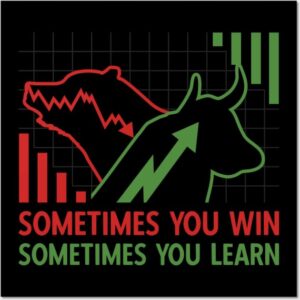What is Active Income in the Stock Market?
Active income involves ongoing time, effort, and attention. In the context of the stock market, it typically refers to strategies where you’re regularly buying and selling securities to generate profit.
Common Active Income Strategies:
- Day Trading
Buying and selling stocks within the same trading day to capitalize on short-term price movements. - Swing Trading
Holding stocks for several days or weeks to take advantage of market “swings.” - Options Trading
Using contracts that give you the right to buy/sell stocks at specific prices, often requiring deep market knowledge and time. - Dividend Capture Strategy
Buying a stock just before the ex-dividend date and selling it after, aiming to pocket the dividend.
Pros of Active Income:
- Potential for high short-term returns
- Greater control over investments
- Exciting and fast-paced for active traders
Cons of Active Income:
- High time commitment
- Requires knowledge and experience
- Riskier due to market volatility and transaction costs
What is Passive Income in the Stock Market?
Passive income is money you earn with little ongoing effort. In stock market terms, it often means investing in ways that generate steady returns over time without constant monitoring.
Popular Passive Income Methods:
- Dividend Stocks
Investing in companies that regularly pay dividends—providing recurring cash payouts. - Index Funds and ETFs
These funds track market indexes like the S&P 500 and require minimal management, offering slow and steady growth. - DRIPs (Dividend Reinvestment Plans)
Instead of cashing out dividends, you reinvest them to buy more shares—helping compound your earnings over time. - Robo-Advisors
Automated investment platforms that manage your portfolio based on your goals with minimal effort on your part.
Pros of Passive Income:
- Time-efficient and low-maintenance
- Lower risk (when diversified)
- Ideal for long-term wealth building
Cons of Passive Income:
- Slower returns compared to active strategies
- Limited control over short-term performance
- Requires patience and discipline
